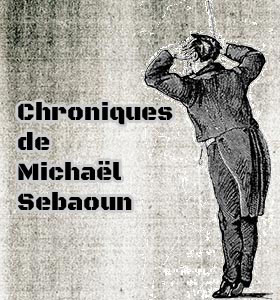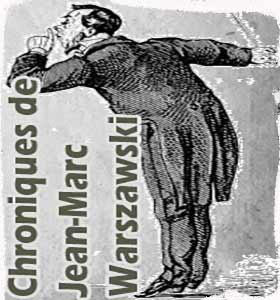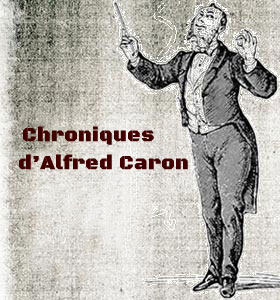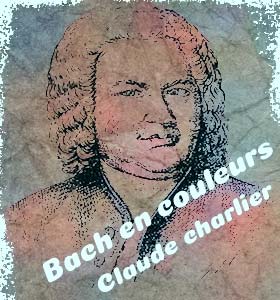musicologie.org, édition du samedi 24 mars 2023 —
Gustav Mahler’s Sound: Between Creative Process, Performance, and Reception
17–20 July 2024, Alto Adige
International Symposium. Gustav Mahler Research Center Dobbiaco
Grand Hotel Dobbiaco (Alto Adige, Italy)
Call for papers
The sound of Gustav Mahler’s music – its idiosyncratic “tone” – is unmistakable. In chamber music song settings or in the large orchestra (expanded by choir and soloists), whether on disc or in the concert, this tone evokes the period of its creation: the fin de siècle, Viennese modernism, and their social fault lines. This sound also opens a wealth of music-historical, music-analytical, intertextual, and cultural dimensions, which are complexified due to their multitudinous interwoven aspects. A multi-perspective approach seems necessary if one wants to better understand a phenomenon that is located in a characteristic way between composition, performance, and interpretation as well as listening reception. The aim of this international symposium is to bring research perspectives engaged with Mahler’s sound into dialogue and at the same time to develop new approaches to analysis and historical and cultural-scientific interpretation. Four sections focus on the areas of Sound Analysis, Sources and the Creative Process, Performance Practice and Performance History, and Mediatized Sound.
Section 1: Sound Analysis
This section follows two lines of inquiry. On the one hand, we seek approaches to musical analysis that examine the compositional history and technical, aesthetic, and performative dimensions of instrumental, orchestral, and vocal sound without losing sight of the traditional perspective of structural and form-analytical methods. On the other hand, this section will explore approaches to a cultural-scientific sound analysis using examples from Mahler’s works.
Possible topics include:
• Historical contextualizations: opera, symphony, song, trends in music and sound history (military music, folk music, popular music, etc.)
• Methods, approaches, and examples of a sound-related analysis of Mahler’s works
• Cultural analysis and/as sound analysis: soundscapes, nature/urbanity and their musical imagination, sound and ethnicity, class affiliation, gender identities, modernity/awareness of modernity, and globalization
Section 2: Sources and the Creative Process
Another approach is to understand sound as a product of Mahler’s specific creative process. What can be learned about the emergence of Mahler’s worlds of sound using the tools of philology and genetic criticism? To what extent and how exactly can the musical life and his working environment, in which Mahler’s imagination of musical sound was formed, be reconstructed on the basis of work-genetic sources?
Possible topics include:
• Sources, source types, genetic criticism
• Stages of the compositional work on the sound (sketch – autograph – stages of the printed editions – revisions and editorial history)
• The composer as performer – the performer as composer
• Intertextual horizons: Mahler’s repertoire, Mahler as listener
Section 3: Performance Practice and Performance History
The experience of Mahler’s sound presupposes its realization in performances. In the performance history, which now spans more than a century, its manifestations have also changed. This section aims to identify reference points and methodological tools for this vast and growing field of research.
Possible topics include:
• Essential processes and dominant personalities of Mahler performance history
• Revisions and retouchings by Mahler and other conductors: “interventions” in the work
• Conductor’s scores and orchestral parts as sources for the history of performance
• Corpus studies on the history of performance based on sound recordings
• Individual studies on conductors and/or orchestras: specific orchestral traditions as “invented traditions”?
Section 4: Mediatized Sound
This section will round off the symposium with a discussion of media and audio-historical approaches. Mahler’s sound is not least a phenomenon of reception. But the history of Mahler listening is also the history of the media (in the broadest sense) that enable and frame listening in different situations and modalities.
Possible topics include:
• The historical development of recording technology and sound aesthetics and their interaction with Mahler reception
• Historical stages and situations of listening to Mahler’s works in concert and on recordings
• Musical arrangements as “mediatizations” of Mahler’s works
• Studio production, working on the sound in the studio: sound engineers as interpreters?
• The marketing of Mahler’s sound
The symposium is a cooperation between the Gustav Mahler Research Center Toblach, founded in 2020, and the Graz research project “Multiple Dimensions in Performances of Mahler’s Symphonies” ), funded by the Austrian Science Fund FWF. The venue is the Euregio Cultural Center Gustav Mahler Toblach.
Submission of Abstracts
Abstracts (in German or English) for presentations at the symposium of max. 500 words (identifying the symposium section) and a short biography of max. 100 words must be submitted as Word documents (docx) by 31 May 2023. The abstracts are evaluated by a jury consisting of the two symposium chairs and leading Mahler researchers. Information on the accepted and rejected contributions will be sent out by 30 June 2023. The costs for participation in the symposium must be borne by the speakers themselves, however grants for participants are available if there is no other possibility of travel funding.
Symposium Chairs : Tobias Janz (University of Bonn) ; Christian Utz (University of Music and Performing Arts Graz).




 À propos - contact |
S'abonner au bulletin
| Biographies de musiciens | Encyclopédie musicale | Articles et études | La petite bibliothèque | Analyses musicales | Nouveaux livres | Nouveaux disques | Agenda | Petites annonces | Téléchargements | Presse internationale | Colloques & conférences | Collaborations éditoriales | Soutenir musicologie.org.
À propos - contact |
S'abonner au bulletin
| Biographies de musiciens | Encyclopédie musicale | Articles et études | La petite bibliothèque | Analyses musicales | Nouveaux livres | Nouveaux disques | Agenda | Petites annonces | Téléchargements | Presse internationale | Colloques & conférences | Collaborations éditoriales | Soutenir musicologie.org.
Musicologie.org, 56 rue de la Fédération, 93100 Montreuil. ☎ 06 06 61 73 41.
ISSN 2269-9910.

Samedi 25 Mars, 2023

